The evaporated
When reality is too hard to grapple with, the only comfort lies off the grid
by Tino Mantarro
Photo by Stephane Remael. Pages 106-107—The evaporated go away discreetly, without leaving any trace. Far from their family, free from their past, they try to start a new life somewhere else. Tens of thousands of Japanese people live like shadows to escape debts.
In its own particular way, “evaporated” is a great word to define people who can no longer be found. It conveys the visual and image-making power of Oriental languages — a power that seems linked to the use of ideograms — evoking something that exists, fades temporarily, and returns in another form. Like rainwater — once it has fallen to the ground, it evaporates into a cloud of moisture and then becomes rain again. In Japanese, the term used is johatsu (蒸発). It applies to people who voluntarily disappear without leaving any trace. A phenomenon with striking proportions in the country: between eighty and one hundred thousand people a year, two-thirds of whom are men. The number includes people affected by dementia, people fleeing a difficult family situation, and people who decide to cut their ties with the past. There could be many more: there is no official registry of missing persons, and many families don’t report disappearances simply because they are ashamed. Although most of these people return after a few months, the rest are lost, often forever.
Johatsu is closely linked to the Japanese culture’s concept of life and personal relationships, whereby keeping quiet is better than speaking and hurting, failure at work or in the family is a social stigma, and shame is a capital sin to endure. So in a country where conformism is a value instilled at school, those who cannot conform to the social norm prefer to give up rather than lose face. It can happen to anyone, at any age: it’s enough to fail the strict university entrance exam, lose your job, drown in debt because of gambling, or just have bad luck. Or even seek a divorce because the spouse is violent, without being able to bear the shame — because it is still perceived as such — of divorce. And so, the only option left is to just evaporate.
The word johatsu seems to be linked to a practice of the past, when those who wanted to disappear went to thermal resorts near Tokyo, such as Atami, where, admiring the view of Mount Fuji, they could retreat among the vapors of the onsen, the traditional thermal baths, and decide whether to end it all forever or return without ever coming back. Perhaps they would find a job in the area, in some inn as cleaners or laborers. Nowadays, it seems a little different, somehow less poetic, assuming there can be poetry in these disappearances.
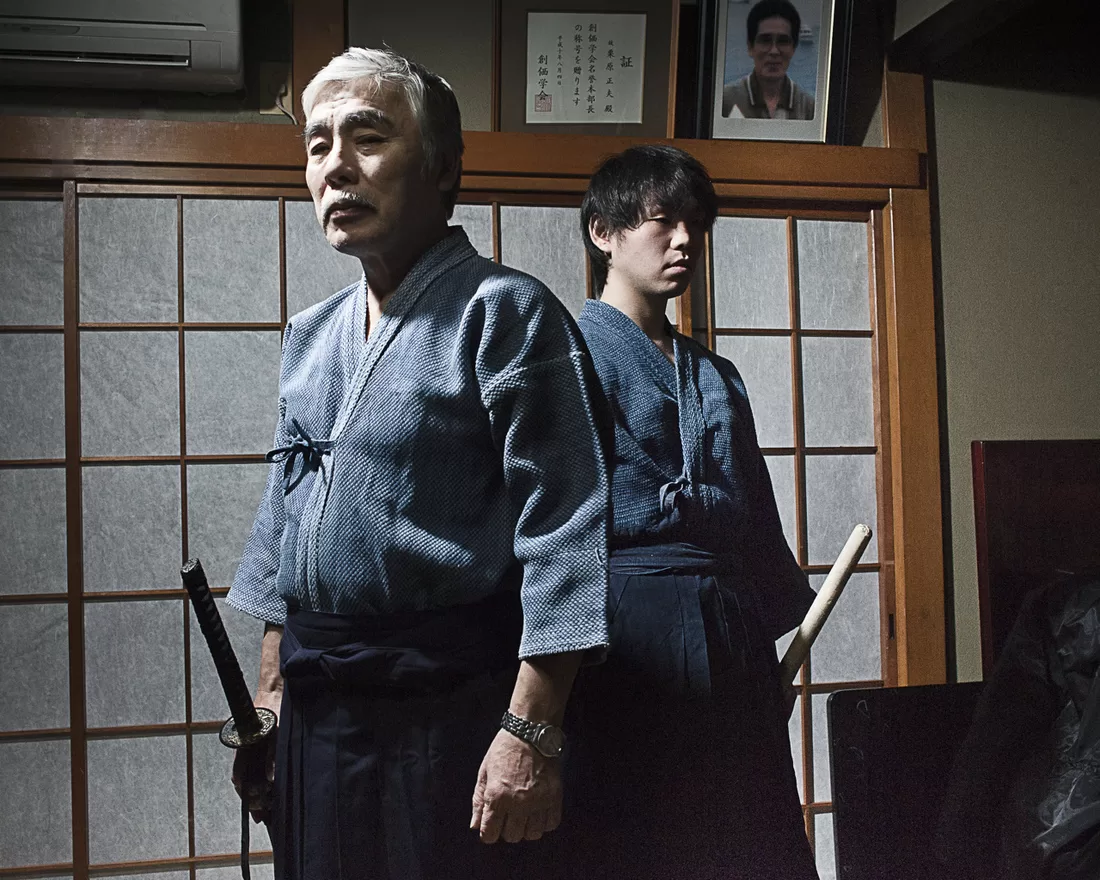
Photo by Stephane Remael. The Kurihama family has run away because of debts from the region of Saitama to a popular area of Tokyo. In his youth, Mikio, the father, was a Kendo (Samurai fencing) instructor. After his disappearance 23 years ago, he puts his attire back on for the first time. “You know, disappearing is something that stays with you,” he says. “To run away is to go towards death.”
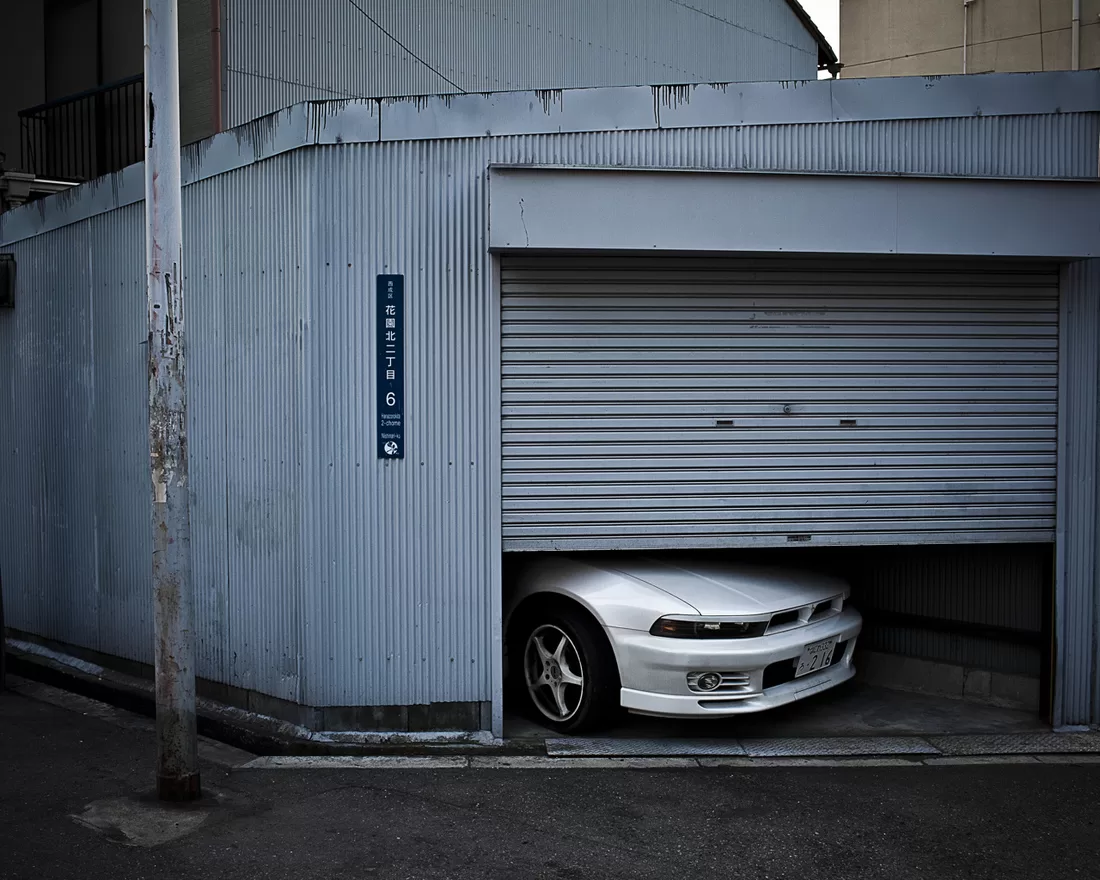
Photo by Stephane Remael. Since feudalism, the disappearance of people was associated with the onsen of the region of the Fuji Mountain, volcanic hot springs where Japanese people come to get rid of their past before “reappearing” somewhere else. The most desperate cases purify themselves by killing themselves—“total disappearance.” The expression “evaporated”—johatsu in Japanese—comes from this metaphor. The evaporations started to become more frequent in the nineties, after the breakout of the financial bubble.
The French journalist Léna Mauger told this story in her book The Vanished. With reporter Stèpanhe Remael, she collected and photographed the stories of people who had chosen to say farewell to their past lives. It was challenging because no one likes to discuss the subject, least of all in a country where silence is the rule for all the most intimate issues. According to Mauger, the tradition of disappearing is ancient and is rooted in feudal Japan. But the phenomenon increases numerically in times of crisis: it happened during the great crisis of the ‘90s when the first real estate bubble burst, and the country collapsed. It happened again in 2008. So for some, it has even become a business.
Another Japanese word related to this phenomenon is yonige, literally “to disappear in the night.” The most common practice is for people, sometimes entire families, to vanish overnight. To do so, they often turn to specialized agencies that advertise in newspapers — in Japan they are still very popular and read — or online as overnight moving agencies, or as yonige-ya, fly-by-night arrangers. Many people who simply disappear take a train in the morning and never return home. But others set everything up painstakingly, getting help from specialized agencies, often run by people who have “evaporated” in the past.
Like Kuno Kuzifumi, almost 70 years old, who evaporated in 1970 after a misguided investment that lost his company 400 million yen. “For months,” he told Mauger, “I wandered around aimlessly, working odd jobs, turning into a drifter with no hope for my future. After a few years, I managed to rent an apartment, changed my last name, which used to be Kuniya, and opened a removal company. I clear houses of everything, even people, if they ask me to: I went from being an evaporated to being an evaporator. Disappearing is relatively inexpensive, between 500 and 3,000 euros, but the agencies don’t accept just anyone. They are selective because there are also plenty of dubious people that want to hide. If it does accept, a group of movers comes at night, covers the windows, wears sneakers to be quieter, and takes whatever they are asked to. Often the clients have already canceled the utilities and sold their car. But the “organized” ones are only a minority of the johatsu. Most just leave home in the morning and don’t return in the evening. The phenomenon is so deeply rooted that in the cracks of a huge metropolis like Tokyo there is a neighborhood where the evaporated seek shelter, San’ya. A place that officially is not even on the maps, but it is more or less near the Hibiya subway station. When there were still castes in Japan, the outcasts, the burakumin, lived here, and death sentences were carried out in a square in the center. After the war, it became a gray area, populated by low-level gangsters and day laborers from rural areas.
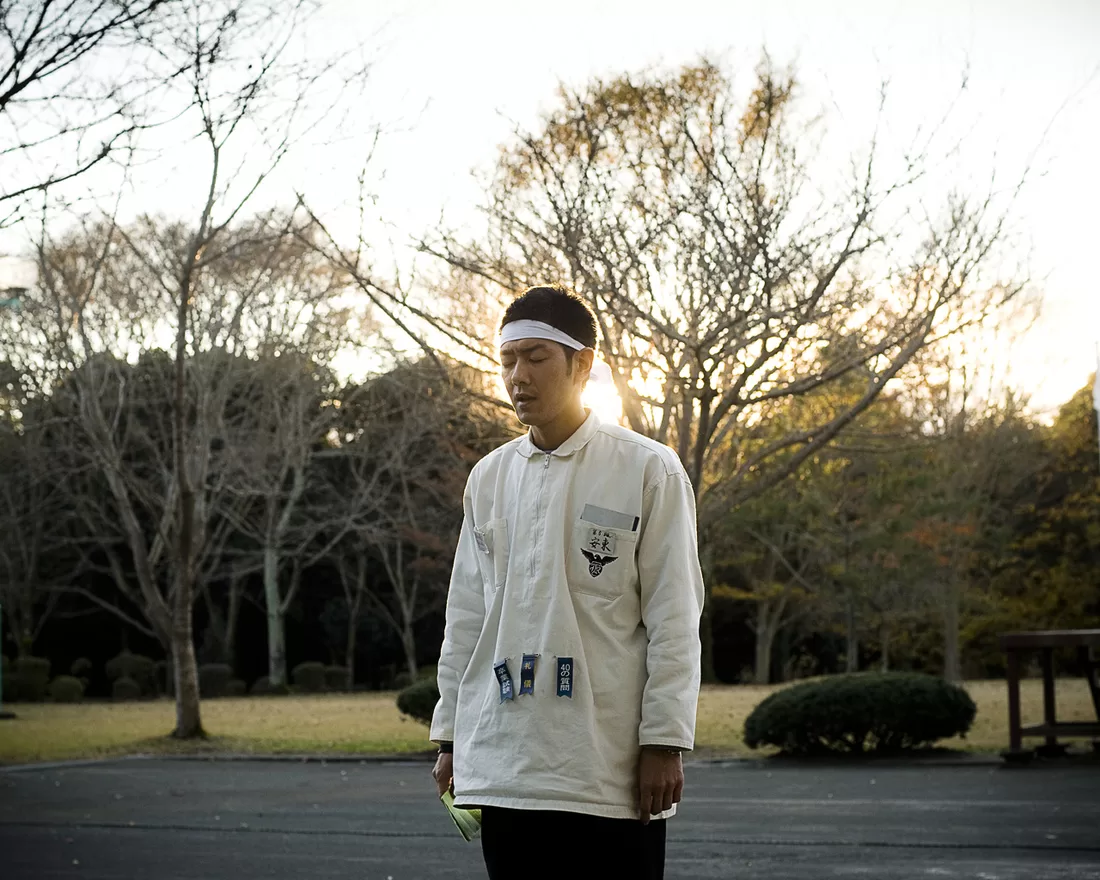
Photo by Stephane Remael. Many employees disappear after having been fired. They don’t dare to confess their failure, and for some weeks (or, rather, months), they pretend that they are going to the office and spend their day waiting there.
In 1966 the city council literally removed it from the maps, though without changing the area’s essence, simply sweeping the dirt under the carpet. It is still a rusty place, with low dwellings and no shine, many shacks of homeless people covered with large blue tarps and salvaged metal sheets. Places you can escape to and get a room without anyone asking you questions or needing your ID. Nearby is Namidabashi Bridge, the bridge of tears where death row inmates bid farewell to their relatives before being executed in a nearby clearing. As if this patch of land had always been bound to be the shady side of the Land of the Rising Sun. In a city where streets have no names and addresses are complex strings of numbers, it seems easier to disappear without anyone coming to look for you.
It may all seem strange, absurd. But in a culture where suicide is considered a dignified way to remedy damage done, or a mistake made, perhaps it is less odd than it seems. According to World Health Organization data, the suicide rate in Japan is over 15 per 100 thousand inhabitants; in Italy it is about 5.
The option of suicide — ranging from seppuku, the ritual performed by samurai who rather than accepting surrender had to make the ultimate sacrifice, to the extreme folly of suicide bombers — is so much a part of Japanese culture that some of the places where it most often occurs have become tourist attractions. It happens in the Aokigahara forest, a sea of trees that has grown over a lava flow at the base of Mount Fuji, a place where those who want to end it all go to get lost among the tree-covered silence. It happens on the Tōjinbō cliffs, in the province of Fukuj, a stretch of coastline with strange basalt rock formations dropping straight down to the Sea of Japan. Legend has it that a monk who fell in love with a young girl was killed here, and that so many suicides have taken place here — at least a dozen a year — that telephone booths have been installed for those who want to reconsider and seek comfort.
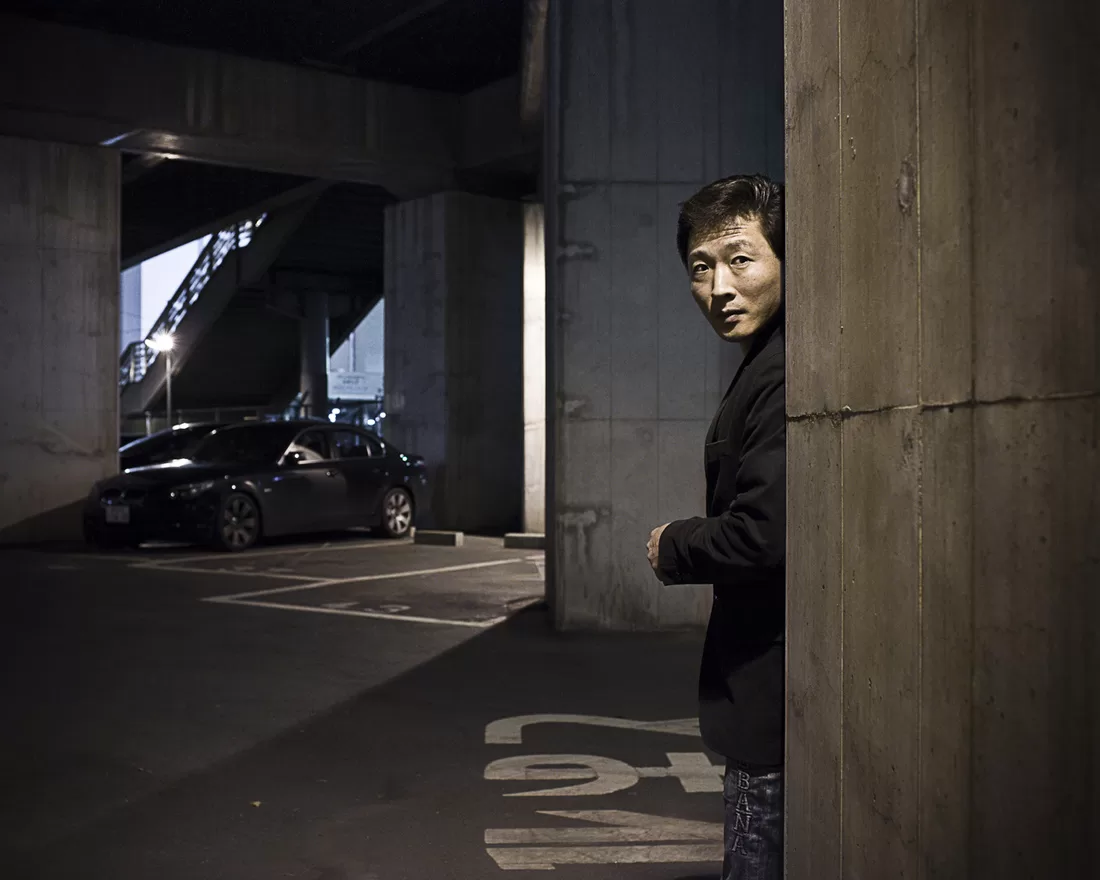
Photo by Stephane Remael. For nine years, Sho Hatori has helped Japanese people to disappear. He gives a testimony of the experience of “mover of the night” in Za Yonige-ya, “the Agency of absconded cases.” His book has gained him public recognition.
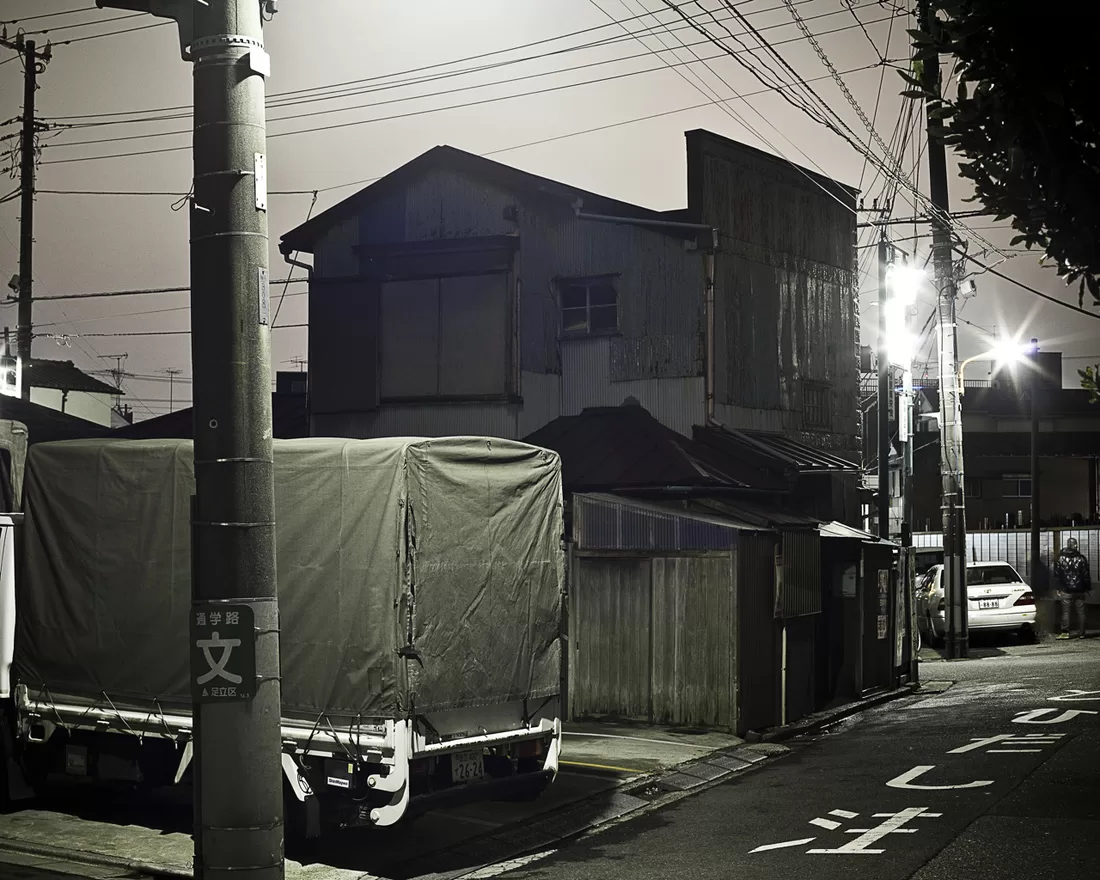
Photo by Stephane Remael. At night, movers take the interested people in their trucks to make them disappear without leaving any trace. They sell their home discreetly and leave everything behind. The majority of the evaporated end up hiding in their own towns: it’s easier to disappear in the anonymous life of a capital city.
Suicide is just another facet of johatsu. But for many, it is an extreme choice. Better to evaporate than to die. A way and a place to start over can be found. The solution is often not to flee to the tropics, as is more common in Europe, but retreat much closer, to neighborhoods on the edge, and sink there for some time. There are also some outside the capital: in Osaka it is Kamagasaki, in Yokohama it is Kotobukicho. The rest is up to the context, the often elusive culture of Japan.
The apparent simplicity with which the Japanese “evaporate” is also due to relatives’ objective difficulty in tracking them down. In Japan, the police will initiate an investigation only if the relatives can bring clear evidence that there has been a crime or suicide. Otherwise, no case file is opened for a disappearance. Add to this the shame for families of having a missing person among their closest relatives, and the missing people are kept in the dark. The wealthiest families have no choice but to turn to private investigators who face the challenge of finding people who voluntarily do not want to be found. Also because the law does not help them.
In a country where confidentiality is proverbial, at least as much as formality, privacy regulations deny the ability to track anyone using their personal information — from their ID card to their Social Security number — when they move about the country. And it is against the law to track transactions with credit cards, ATMs, and any other financial instrument.
What’s more, individual territorial administrations are not interconnected, so if someone deletes themselves from one constituency and then registers at the other end of the country, there’s no way to know except by asking all the constituencies in a country of 125 million people. But more often, people simply go off the grid without registering elsewhere, choosing to remain in a parallel world, freer of the social constraints of a formal, bureaucratic country. They continue to live in the anonymity of the cities, where everyone knows but pretends not to. Carrying on a long tradition of not talking about things, pretending that a problem does not exist.



